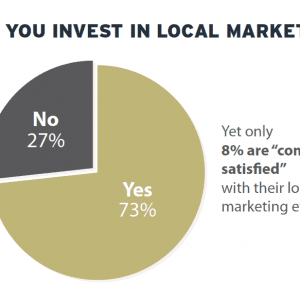Channel News
Kaspersky Prepares Partners For Accelerated Growth In Endpoint Security With Expanded Sales And Marketing Programs

The rise of Bring Your Own Device (BYOD) business models, and the growing threat of cyber crime have led to an increased need for endpoint security, and in turn more opportunities for the channel.
Since these trends are impacting both SMBs and large enterprises alike, Kaspersky Lab is planning a forceful channel expansion on an international level. After posting record revenue of $612 million in 2011, the Russian antivirus software and endpoint security solution provider is planning to arm partners with a wide variety of tools and tactics to drive customer growth.
Kaspersky Lab’s annual partner conference, which took place in the Bahamas from May 10-13, 2012, revealed numerous programs for the company and its partner networks, including new sales enablement tools and initiatives, and marketing advancements.
By 2012, the Kaspersky team is targeting $750 million in total sales bookings, and $1 billion by the end of 2014, according to Dave Eggers, CFO of Kaspersky Labs. In order to reach these goals, sales and marketing teams across the channel will collaborate to develop brand recognition, as well as loyalty.
The programs Kaspersky Labs plans to implement and relay to its networks of partners include: initiating and maintaining relevant dialog with customers; reaffirming Kaspersky and its partners’ positions as thought leaders in the endpoint security space; and utilizing thought leadership content and educational tools to drive demand.
Taking A New Approach To Demand Generation
Spotlighting Kaspersky Labs’ aggressive growth targets, Chris Doggett, VP of Channel Sales for Kaspersky Labs, shared the company’s channel-wide goals for 2012 and beyond, starting with gaining more momentum in its target marketplace.
“Some of the things that are most exciting about Kaspersky right now is the momentum we currently have in the marketplace, the loyalty we have with our partners, and the opportunity that’s in front of us in terms of growth and our ability to expand in this market,” Doggett said. “We have a great base to build off of, and we’re focused on continuing to expand our lead in partner loyalty and in being the most valuable player in the security space. We also want to continue to expand geographically, both in the breadth in regional and local markets, as well as the depth, particularly by selecting the right partners to go to market with that have the skills and reputation with their customers for us to be a winning team.”
According to Nancy Reynolds, SVP of Corporate Sales, Kaspersky will be arming partners with a new approach to inbound and outbound marketing. By focusing more on customer pain points in both B2C and B2B worlds, rather than solutions and product specs, the company and its supporters will be seen as thought leaders and innovators in the space, rather than salespeople.
“Imagine a business partner that’s running at the speed of opportunity,” Reynolds said. “The security industry isn’t new, but it’s our approach to business [that is]. In 2011, our focus was on ingenuity: what new ideas, partners and tools we could use to enable you. We really got smart about some of the tools to make partners more productive, and get you to your customers, both new and existing, faster. Sales and marketing go together: we’re changing the conversation. It’s not about us; it’s about our business and your customers’ pain points. We want to change the conversation and bring more opportunities to you.”
Newly appointed VP of B2B Marketing, Jean Lozano, also pinpointed Kaspersky’s newfound dedication to taking a more trend-focused route to brand content across the channel. Furthermore, the company will be honing in on customer sentiments, turning end-user conversations into actionable plans for future investments.
“In the industry as a whole, especially for a technology company that’s so passionate about its products, it’s easy to discuss specs and solution information,” Lozano told Channel Marketer Report. “But what’s equally important is discussing the pain points of customers. From a marketing point of view, we’ve seen a resurgence a greater discussion of customers and less about products because when you look at business drivers in this space, it is more complex than ever before.”
Kaspersky Lab CEO, Eugene Kaspersky, specifically has developed a reputation as an innovator and visionary in the security space, according to Doggett. To convey this on a larger scale, the company is working to extend key messages and thought leadership content to partners for optimal sales results.
“From a sales perspective, it’s very important for us to equip our partners with those messages, so they can be the guides to their customers about what they need to be focusing on,” Doggett said. “We hear that customers are in a reactive mode to a lot of trends happening in the security space. If all is quiet, IT teams will be a bit later in the game, but we are trying to present that information and communicate it to the customers.”
Although Kaspersky has already addressed partner needs by offering guidelines and educational resources to optimize webinars and other turnkey nurturing tools, the company will be moving forward with more interactive initiatives including prospect-controlled demos, social media and a mobile solution designed for seamless deal registration.
“We’ll be introducing more tools and programs throughout the next several quarters that are designed to help our partners communicate easily with customer base,” Doggett said. “It might be sending specific emails to customers that are topical and timely, and helping them do it on a turnkey basis. This is very important to driving new business, and generating new leads and customers.”














